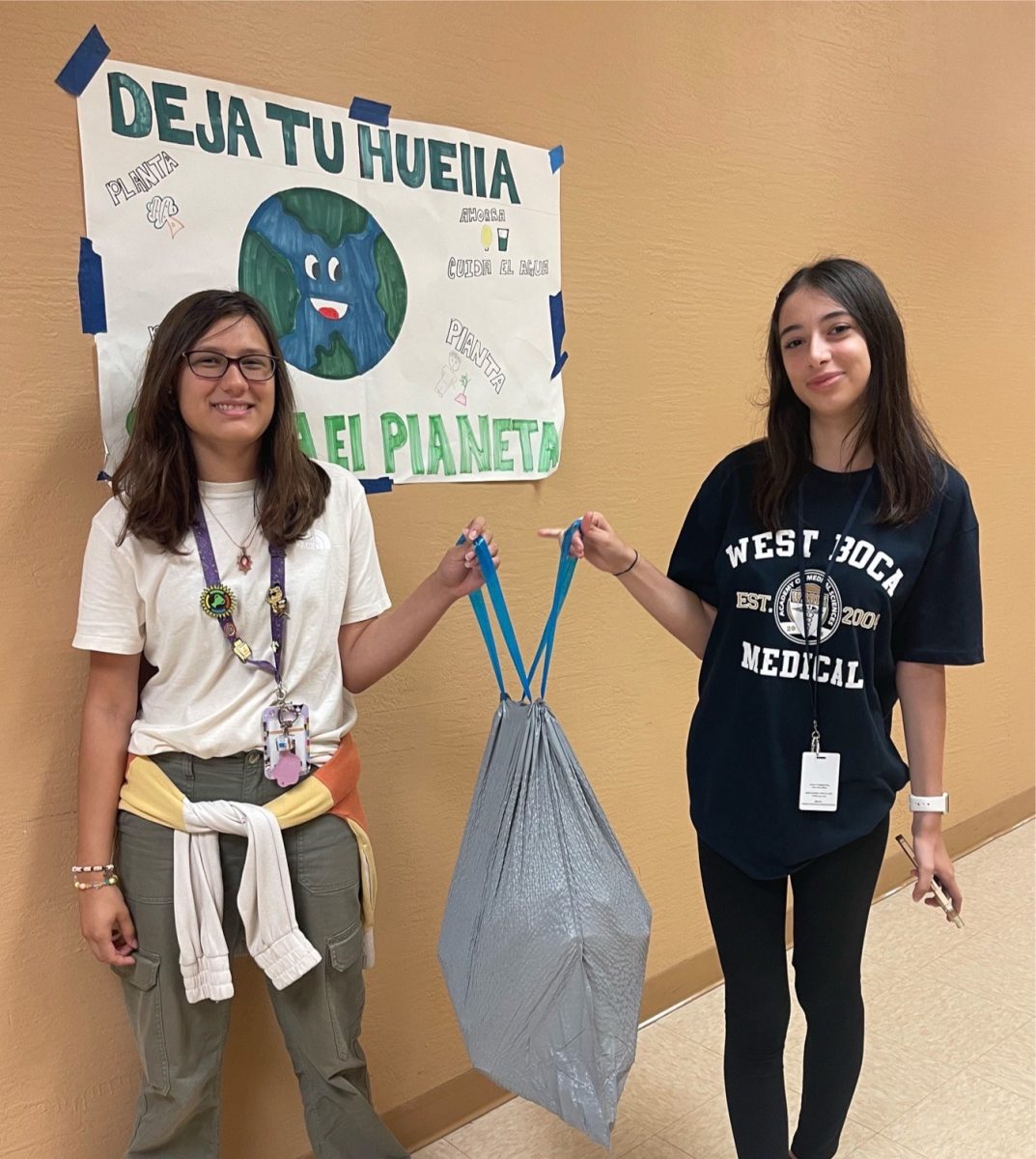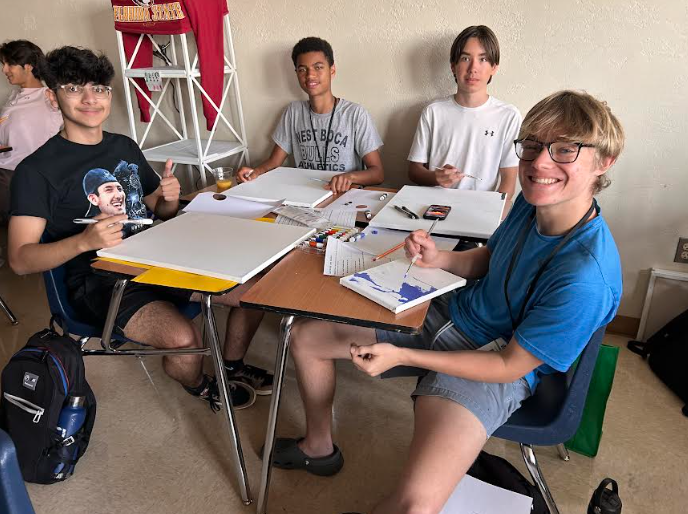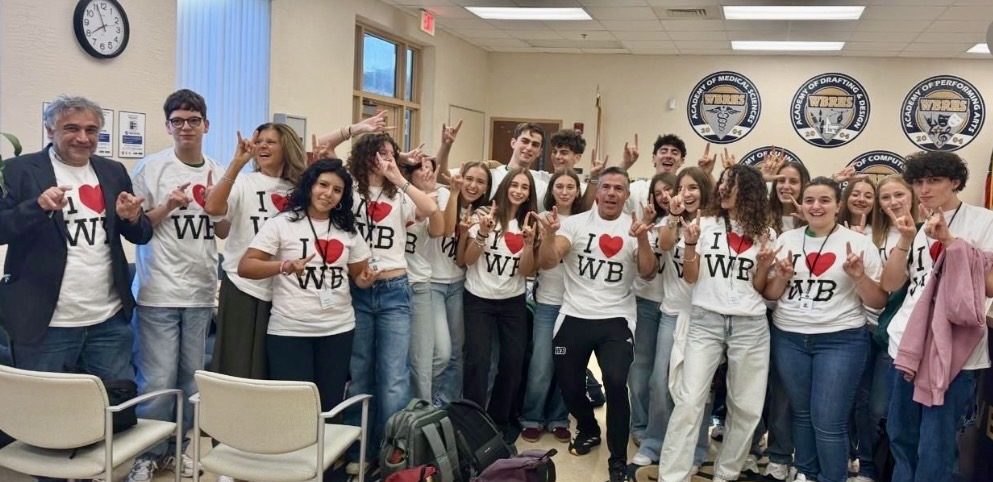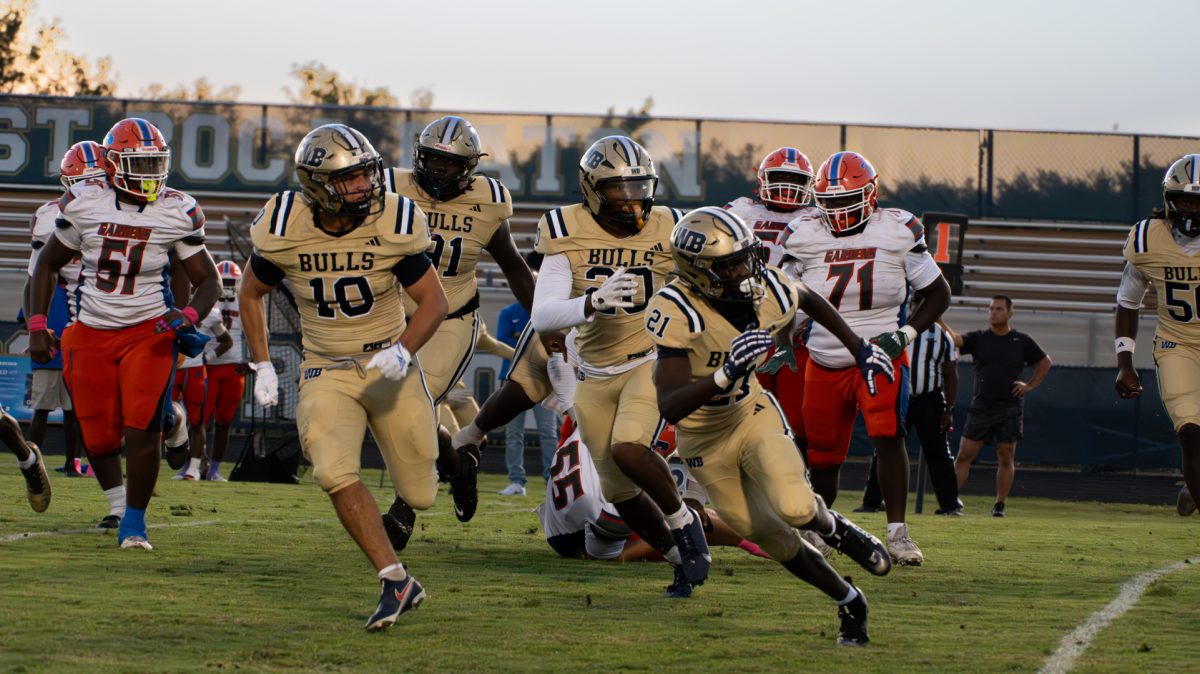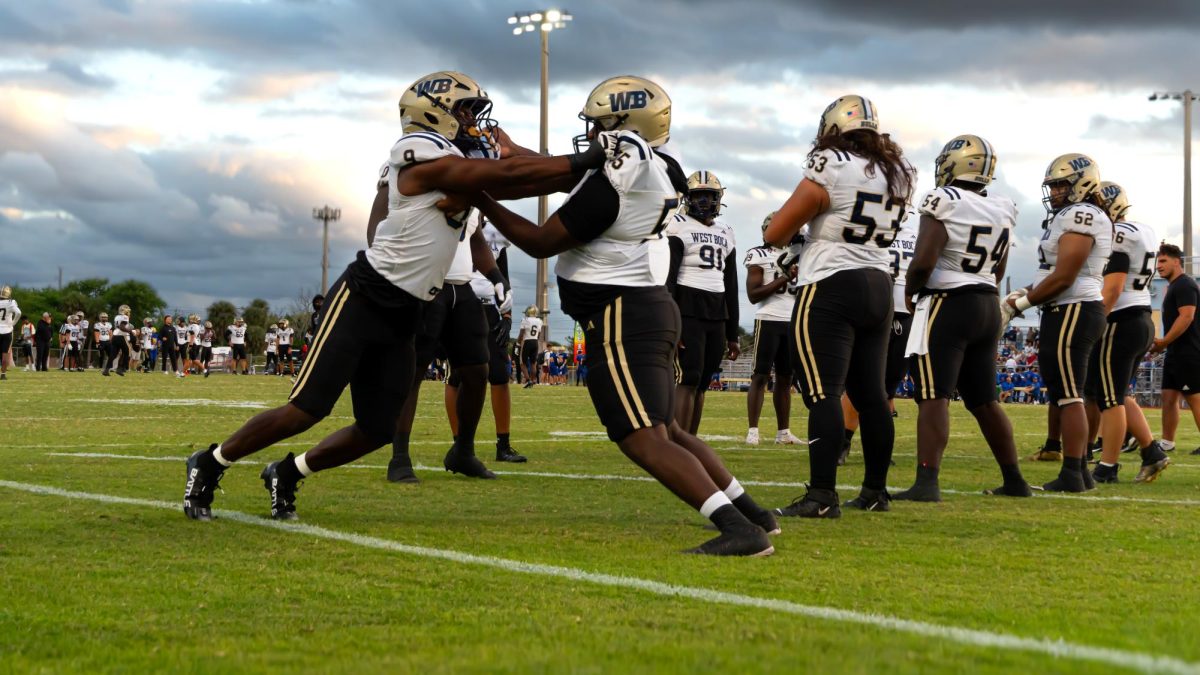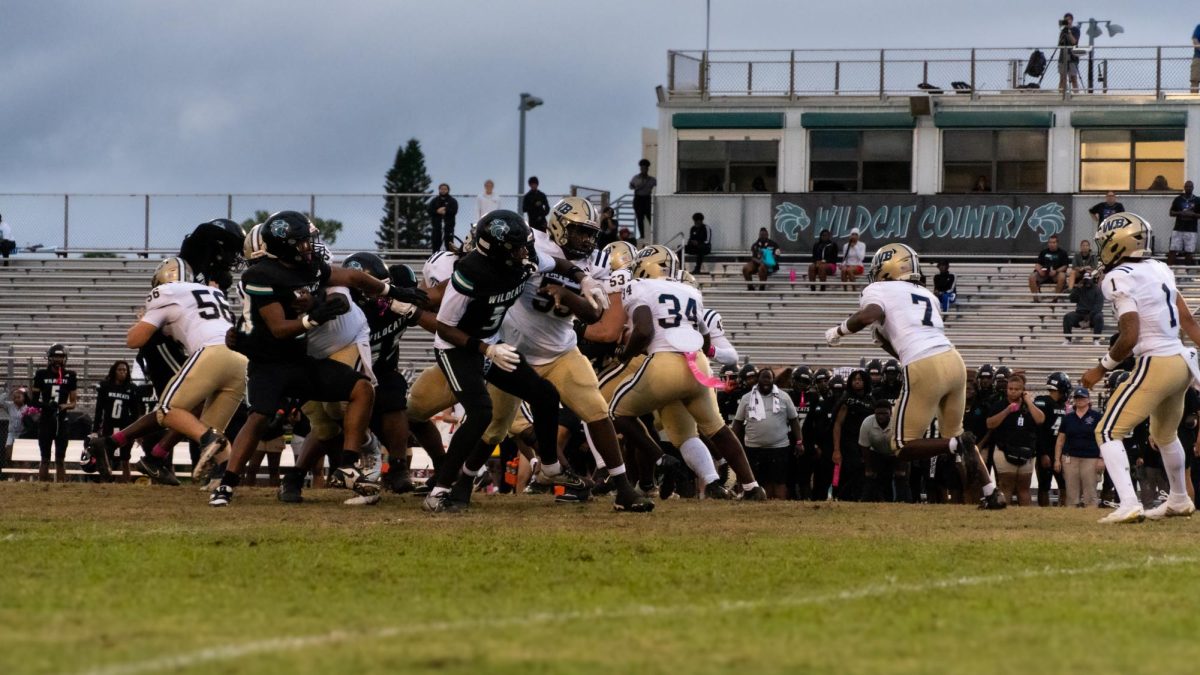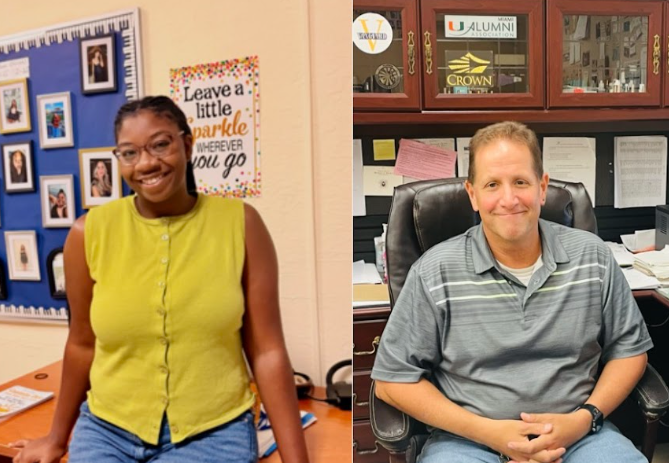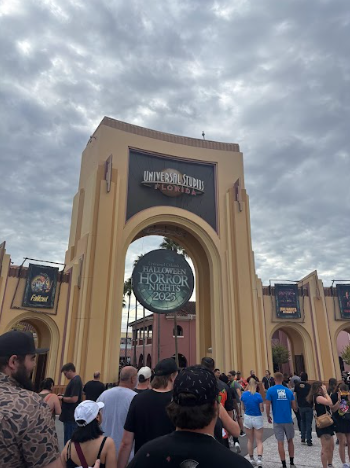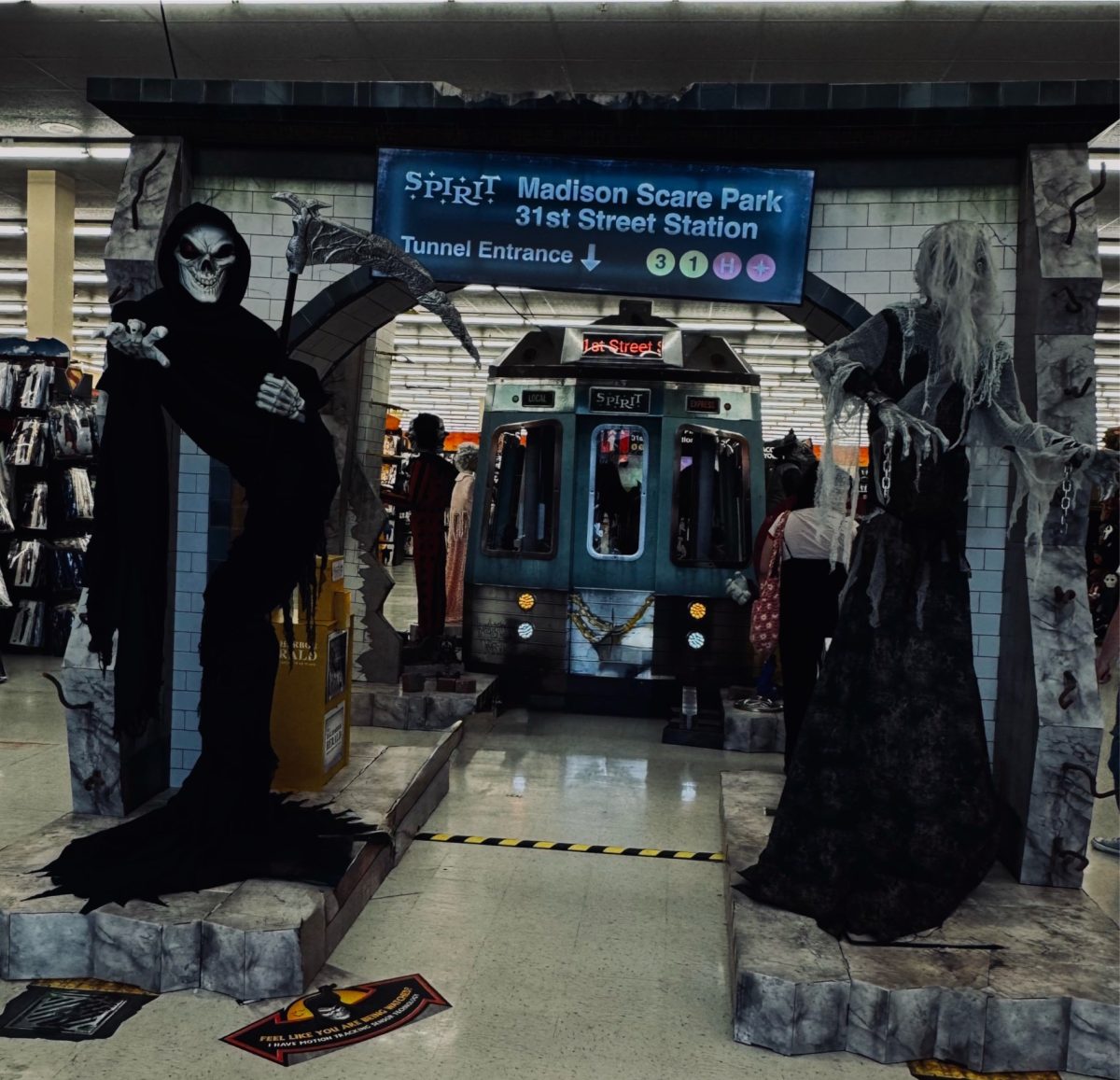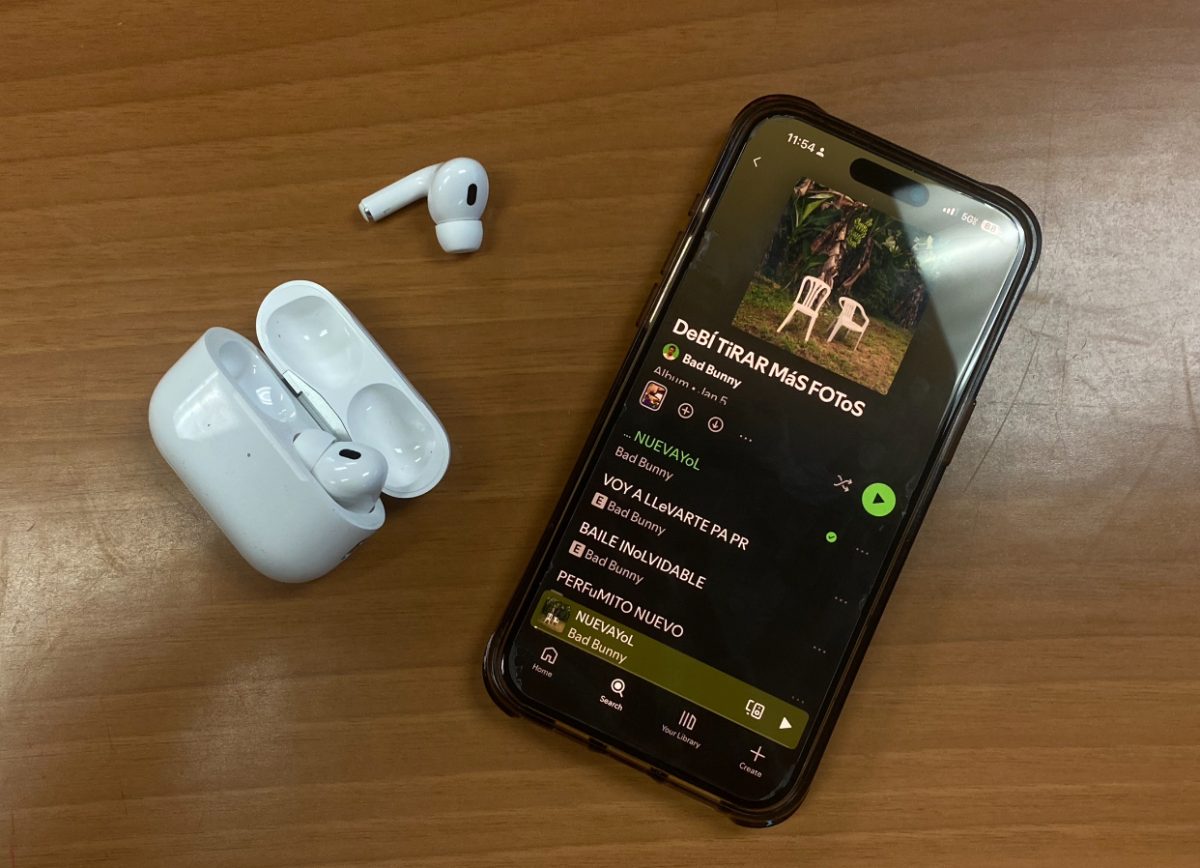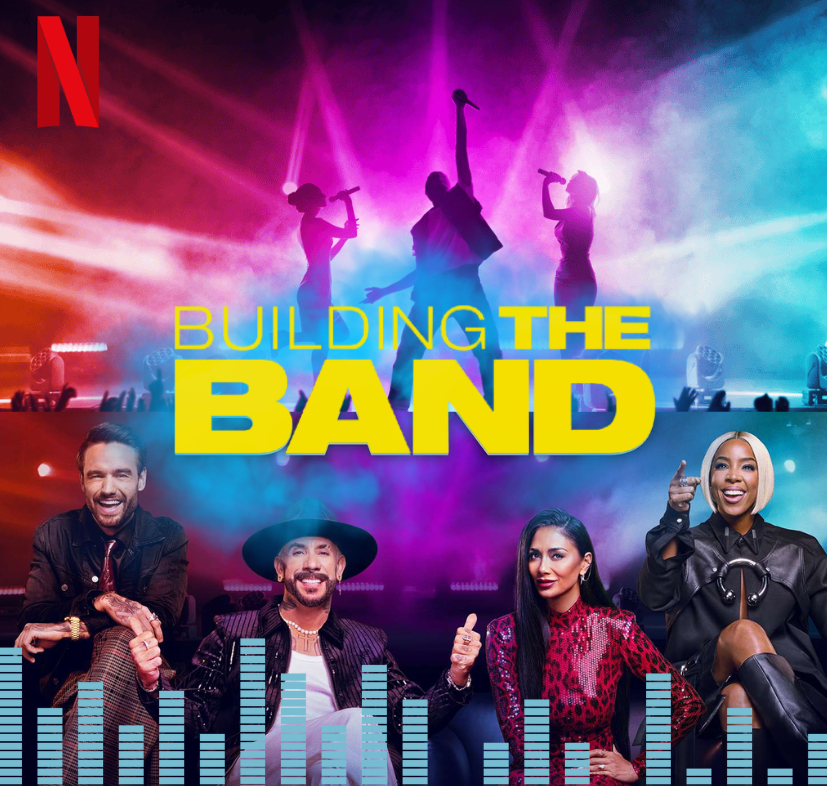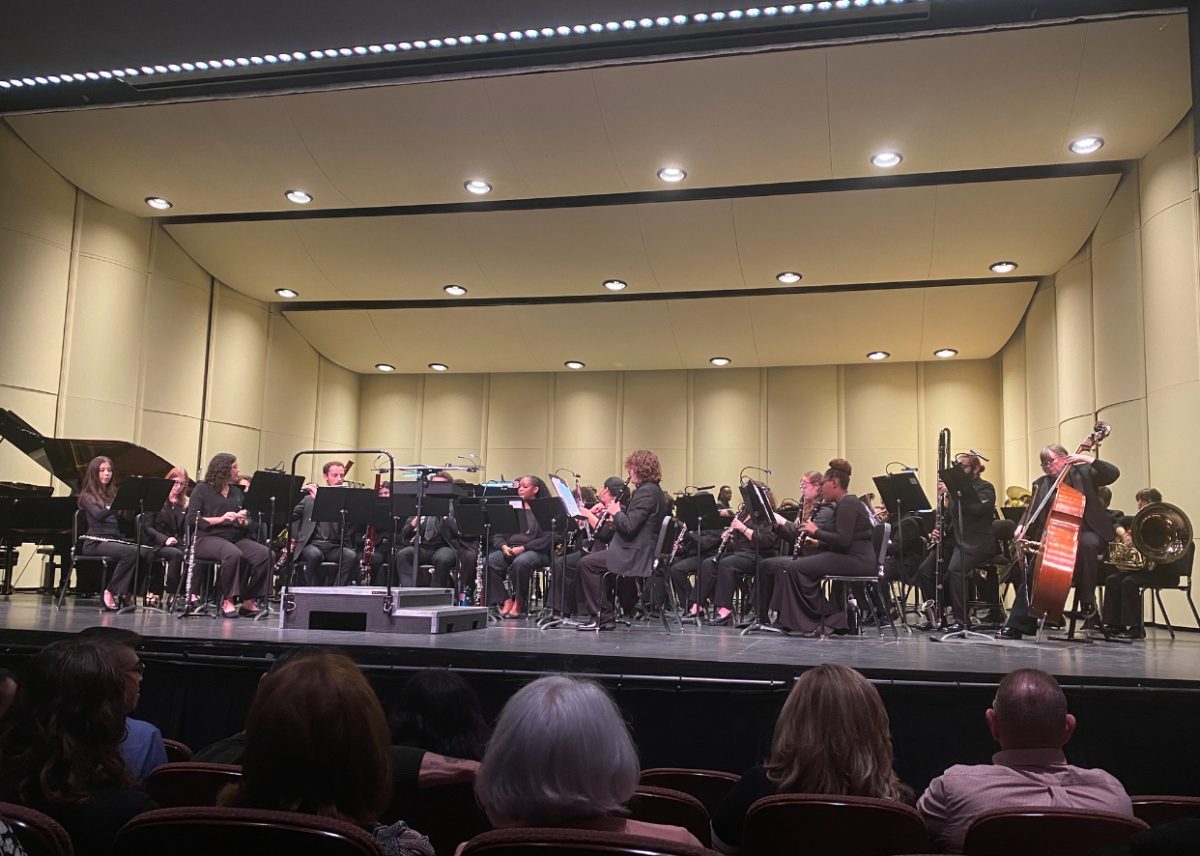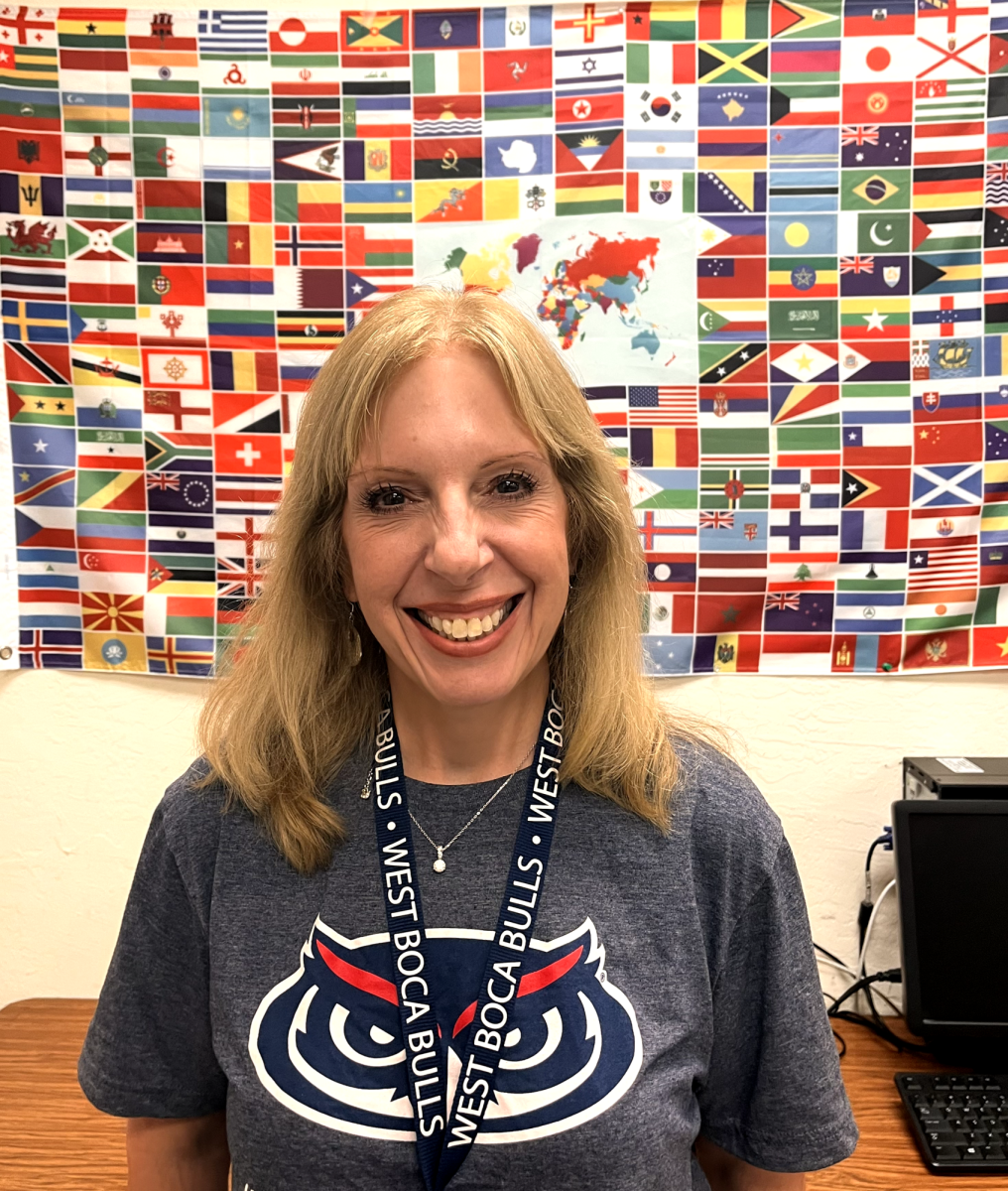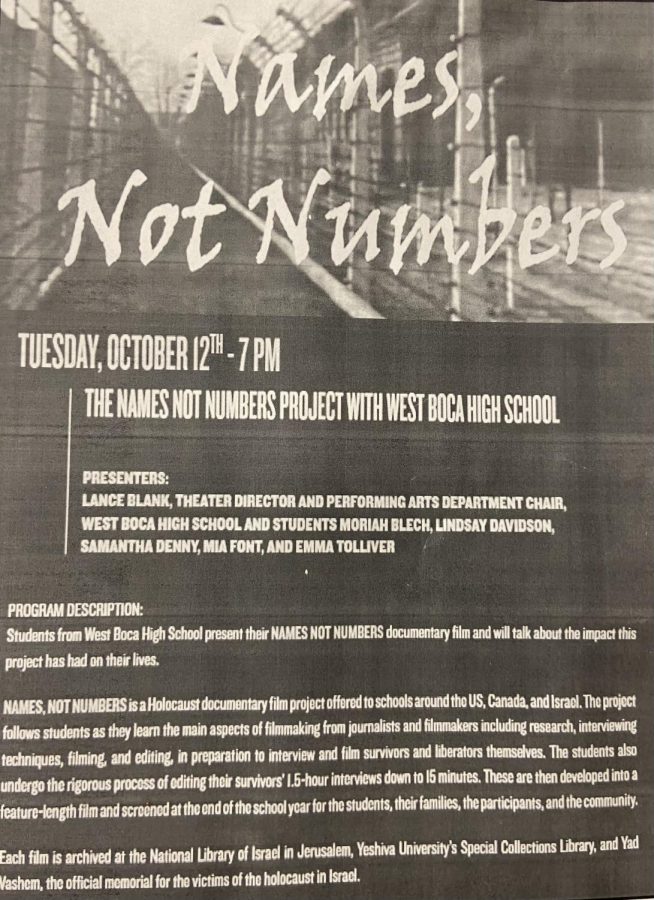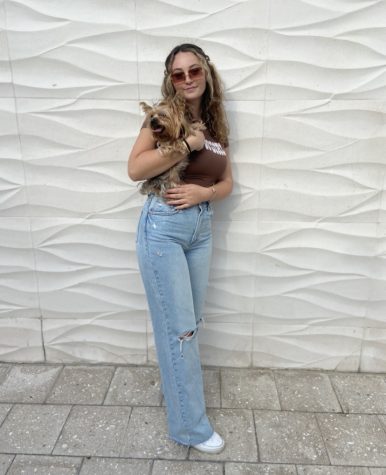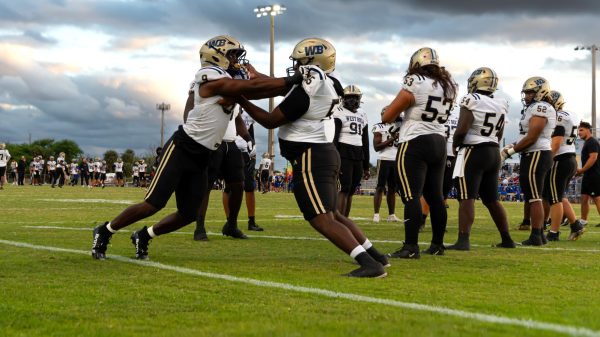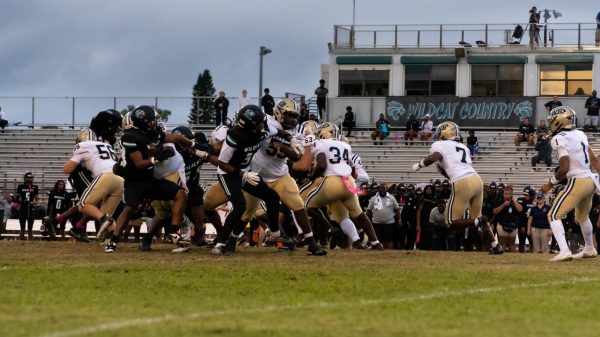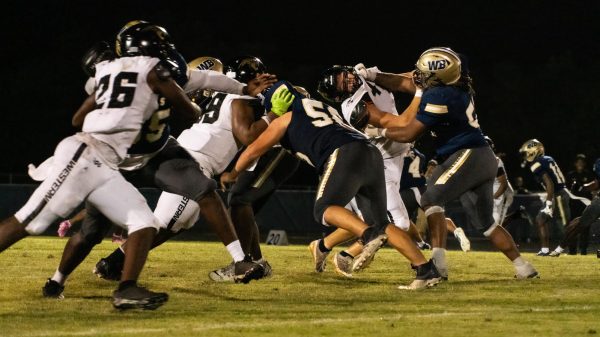“Names, Not Numbers”
West Boca Students Create and Document Interviews with Holocaust Survivors.
The flier for the “Names, Not Numbers” documentary by West Boca students and Holocaust survivors.
November 4, 2021
West Boca High School participated in creating the “Names, Not Numbers” documentary, a Holocaust documentary film project offered to schools around the US, Canada, and Israel. The project follows students as they learn the main aspects of filmmaking from journalists and filmmakers.
Mia Font-Lorie explained, “Our ‘Names not Numbers’ documentary was a wonderful experience. We got to interview Holocaust survivors one on one and hear their stories while learning more about what happened. Each student got to learn the process of how to create a documentary, from editing, research, directing, etc.” The West Boca Drama Department put on a production of “I Never Saw Another Butterfly” in 2019, a play about the children in Terezin during the war. Once the production was over, they were invited to work on the Holocaust rememberance project, “Names, Not Numbers”. They had days of training for it, including the process of research, editing, and filming with professionals from New York. It was said to be “an amazing experience”.
This film was incredibly impactful. Hearing the survivors speak and watching the emotion in their eyes when they got to tell their story was moving. This documentary is so important to watch. It is something that most people can’t say they’ve experienced, living through the Holocaust, and watching survivors talk about it is something most people can’t say they’ve experienced either. Listening to survivors now is more important than ever, because this is the last generation of survivors alive who can tell their stories first hand. These people in the documentary can remember most of the dates of the events that took place which is remarkable so many years later. Just from watching and listening, viewers can see that these truly are survivors, who have gone through so much and made it here today.
This film followed four Holocaust survivors. Judith Goldstein, from Poland, Norman Frajman, from Poland, Mary Eckstein, from Hungary, and Anya Baum, from Belarus. These four are incredibly well-spoken and so inspirational in their stories and experiences in the film.
Their stories take viewers through the events of the Holocaust from start to finish, and even talk about after they were liberated.
Before the war had started all of the speakers, Judith Goldstein, Norman Frajman, Mary Eckstein, and Anya Baum had felt oppression at the hands of the anti-sematic rhetoric going around. As Jews, they were denied everything from business rights to the rights to shop in a store. Mary Eckstein remembers being denied an ice cream cone and crying as a child. After the war had begun, these survivors had run from home as the intensity, violence, and fear of the war set in.
Many were sent to live in ghettos or Jewish houses which were very crowded, with little food or water. If anyone had more food than others they were punished. They had been described by Norman Frajman as “horror, hell on earth” and only “the beginning”. During this process, many people lost family members, especially their fathers, as men were more valuable to the Nazis. It was a horrifying reality and people knew they would die. Judith Goldstein described a situation she would never forget. “My little friend, 7 years old, took off her knapsack and said ‘Mommy, mommy. Don’t ever forget me. Here is my knapsack. They’re taking me to Ponari and they’re going to shoot me.’… and that’s exactly what happened to her”.
These survivors, specifically Judith Goldstein and Norman Frajman, were loaded onto freight cars and trains which had little to no food, water, and bathrooms. All of them had been sent to concentration camps. They were fed one slice of bread and “soup”, which was more water, and they were starving. It was harsh. Judith Goldstein recalled another situation where her mother took her out of the barracks for the day and when they had come back, there were almost no children left. Soon after, the Nazis had been calling for all children under 13 years of age to come out. They knew what would happen. Judith’s mom held her back and by the time she came out, the children had left, and Nazi soldiers had told her she could go back inside and she was spared.
Anya Baum recalls coming out of the trains to people confused and asking “Where are your horns?… Jewish people have horns.” Her mother said, “We people like you are. We have no horns- just a different religion.”
In Mary Eckstein’s interview, she remembers a story of how her was mother spared when the Nazi’s were lining up women and shooting them one by one after they were taken. Later she recalls, her and her mom putting on an act that her mom was sick, so that they weren’t taken.
These survivors were forced to grow up so early on as young children forced to face the harsh reality of war. Towards the end, they recalled the loud sound of guns and bombs- the war so severe that they could not even see the sun. The cities were pulverized.
Eventually, the war came to an end. After all the tragedy, these survivors were liberated by the allies. Though, the hardship wasn’t over. After the war, people were “helpless”. They had no money, no jobs, homes, or anything really. The survivors went to Displaced Persons Camps. From there, they established themselves and each: Judith Goldstein, Norman Frajman, Mary Eckstein, and Anya Baum moved around a few times before eventually arriving in America.
In current times, these survivors have developed full and successful lives, being able to speak to students from our school at West Boca High School. At the end of the documentary, the students spoke about how important the creation of this documentary was. They spoke to how special it was to hear the Holocaust survivors’ experiences, especially in person. They’ve said you could read about what happened in a book or read words on pages, but you could never see the emotions in their eyes until you talk to them or watch this documentary. It’s essential to keep this going so these horrific events don’t go forgotten and these people don’t go unnoticed. Mia Font- Lorie said, “Hearing their stories was truly heart-touching. Each survivor had a unique and different story from everyone else, yet very similar at the same time. I believe it is important that we continue sharing these stories so they don’t get lost under misinformation and we don’t repeat history. These are real people, with real stories and this was their reality. I am very grateful and appreciative of this opportunity and this was an experience I will cherish forever.”
In the end, each survivor had a message to share from everything they had learned.
Norman Frajman mentioned, “History is capable of repetition, it can happen.” He also said, “Message is clear. Be tolerant of one another and stomp out hatred, because it’s the cause of all the problems we are going through and went through.”
Anya Baum said, “Be very alert about everything that’s going on. Don’t accept bullying. If someone bullies you; look at them, smile- smile- and walk away.”
Judith Goldstein shares, “Identify the evil powers and don’t just be quiet about it. You are the future. To everybody- not just to Jewish people- This is planet Earth for all of us. We have to be kind to each other.”
Mary Eckstein said, “You have to realize that you are entrusted with very important task. You have to make sure that your children, your grandchildren, your friends, anybody you come in contact with- know that the Holocaust happened. That 6 million Jews and 5 million others were systematically killed and if someone says it never happened- you have to have the answer. And other thing you have to make sure; that you won’t let hate guide your steps because all that happened was because of hate. You have to make sure that it will not happen.”
After these inspiring messages the film ended with,
“This film is dedicated to the children who perished in the Holocaust.”
You can find the documentary here at;

